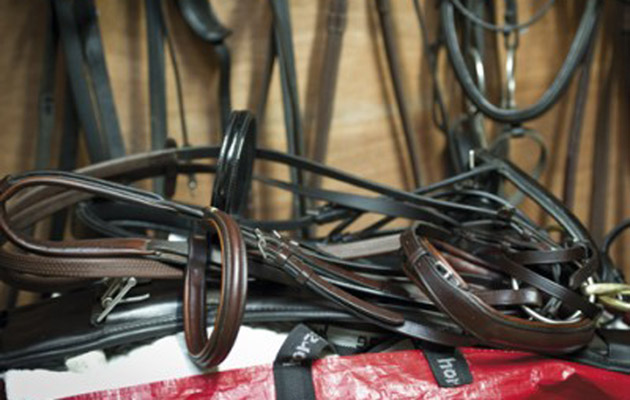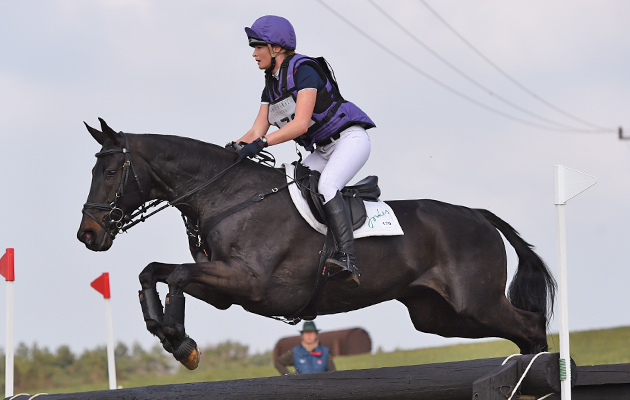Love horses but don’t fancy spending your days behind a wheelbarrow? Hanna Lindon digs out some jobs that should fit the bill
1. Photography
What to expect: photography can be incredibly varied, from visiting shows and events to engaging in privately commissioned shoots.
Are you right for the job? “If you wish to excel as a photographer, a great deal of motivation, determination, initiative and hard work is required,” says Ciara Doone, who runs her own equine photography business.
Training and qualifications: the photography industry is largely unregulated.
Top tips for finding work: “My advice to anyone starting out as a freelancer or looking to set up their own business would be to get support and network,” says Ciara. “You simply can’t talk to enough people when you’re starting out and getting some good, solid business advice really is invaluable.” A proven commitment to photography is essential.Initially you may have to work for free to create a portfolio.
Once established, salary will depend on work.
2. Marketing
What to expect: there is a wide range of marketing jobs within equestrianism, so you could find yourself promoting horse feed, clothing, an individual rider or even a major event. Roles tend to be creative and sociable, often with plenty of travel involved.
Are you right for the job? Candidates should be creative, motivated and good communicators. You should also be prepared to take on long hours and occasional weekend work.
Training and qualifications: most roles require candidates to be degree qualified. Some colleges run courses that specifically cover equestrian marketing, such as the foundation degree in equine business events management at Askham Bryan College. A general marketing or journalism qualification may also be an advantage.
Top tips for finding work: Tim Smith, MD of equestrian/rural PR and marketing agency TSM, says: “One of the best ways to get into the industry is to try to gain work experience, whether in-house or at an agency. We regularly have young people come for periods of time and I think it is very beneficial for them to see what is involved on a daily basis, to experience the good days and the more trying ones.”
Guideline starting salary: £20k
Continued below…
Balancing family life, work and horses with studying can be tricky. Stephanie Bateman suggests some top tips for making it

Careers week: 5 ways to juggle horses and home study
3. Accountancy
What to expect: equestrian accountants look after the financial and tax affairs of clients across the disciplines, from racehorse trainers and breeders to polo, dressage and event yards.
Are you right for the job? “An interest in horses is a bonus, because clients like to know that we are interested in their business,” says Peter Treadgold of Smith & Williamson. “The reality is, though, that we’re accountants first and horse people second — although my team and I are able to combine business with pleasure, which means that sometimes it doesn’t feel like work.”
Training and qualifications: firms like Smith & Williamson take university graduates in a wide range of subjects, as well as post-A-level school leavers with good GCSEs in maths and English. A degree in equestrian business management, such as that on offer at Hartpury College, could prove an advantage. After three years (five for school leavers) of work and exam-based training, students will qualify as chartered accountants.
Top tips for finding work: “I’m always really interested to hear from people who have an equestrian background,” says Treadgold. “So on top of good maths and English GCSEs, a strong interest in horses is a real plus.”
Guideline starting salary: £25k
4. Law
What to expect: only a small number of law firms in the UK specialise in serving the horse industry. Lawyers working in the equestrian market will generally have their own specialism — such as litigation or commercial law — and a back-up on wider issues such as matrimonial, employment, trust or agricultural law.
Are you right for the job? Academic aptitude, commitment and a willingness to work long hours are all essential.
Training and qualifications: you will first need either a law degree or a degree in an unrelated subject followed by a law conversion course. Then, depending on whether you want to become a barrister or a solicitor, you will do a one-year Legal Practice Course (LPC) or Bar Professional Training Course (BPTC). The final stage of qualification is a two-year training contract with a law firm.
Top tips for finding work: “The industry is very competitive and most graduates will need to demonstrate to a future employer that they have already done some work experience,” says Justin Wadham, a consultant at Newmarket-based equestrian and sports law firm Edmondson Hall. “If you want to act in the horse world, a knowledge of horses and the industry is fundamental.”
Guideline starting salary: £35k
5. Land management and property
What to expect: working in the property industry could involve anything from preparing grazing licences for paddocks to providing valuations for equestrian property owners and marketing yards for sale.
Are you right for the job? “Good communication skills are key — you need to be approachable and professional,” says Louise Elliott, who works for Savills’ Rural Agency. “A good grasp of spelling and grammar is important for report writing and preparing sales particulars,” she adds.
Training and qualifications: a degree in land management is useful but not essential.
Top tips for finding work: “I have always been flexible on location,” says Louise, “which makes keeping a horse difficult, but has created more opportunities for me.”
Guideline starting salary: £20k
6. Physiotherapy
What to expect: assessing horses with physical problems and treating injuries or discomfort with various forms of therapy are key components of equine physiotherapy. A physiotherapist could see between four and 14 clients every day and will be in constant communication with vet practices and horse owners.
Are you right for the job? Maruska Aylward of Bridgefield Physiotherapy, in Surrey, says that a good work ethic and motivation are essential. “You have to be a problem solver and ideally have a scientific, but practical mind.”
Training and qualifications: to become a Category A member of the Association of Chartered Physiotherapists in Animal Therapy (ACPAT), you must first obtain a BSc honours degree
in human physiotherapy, followed by a postgraduate diploma or master’s degree in veterinary physiotherapy. ACPAT-recognised postgraduate courses include those from Hartpury College and the University of Liverpool, although clinical experience in human physiotherapy can be a prerequisite. Alternative routes outside of ACPAT are available, with courses on offer at the College of Animal Physiotherapy and Writtle College.
Top tips for finding work: “Obtain as much work experience as possible,” advises Maruska. “Ensure you take A-level biology at least, and it helps to be a rider and a horse owner.”
Guideline starting salary: £40-£90 per horse
H&H 30 July 2015




